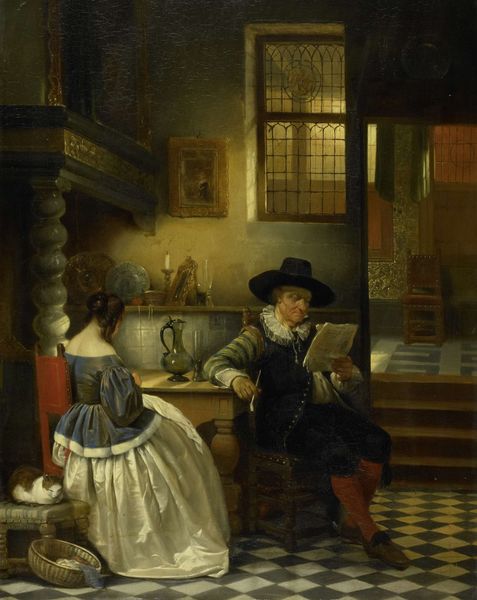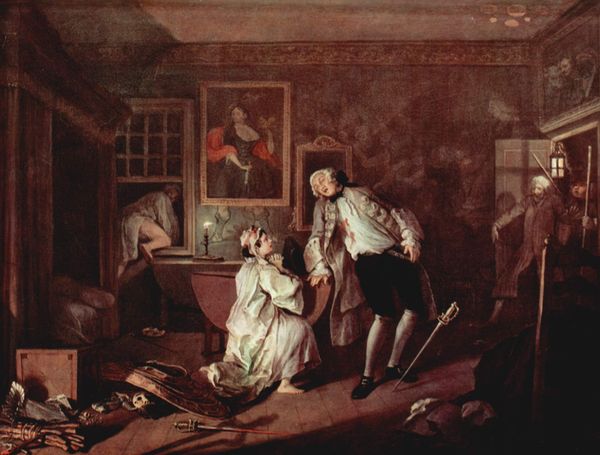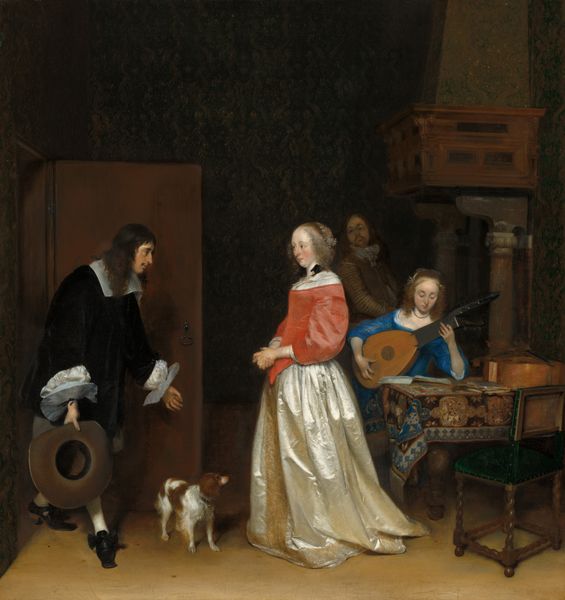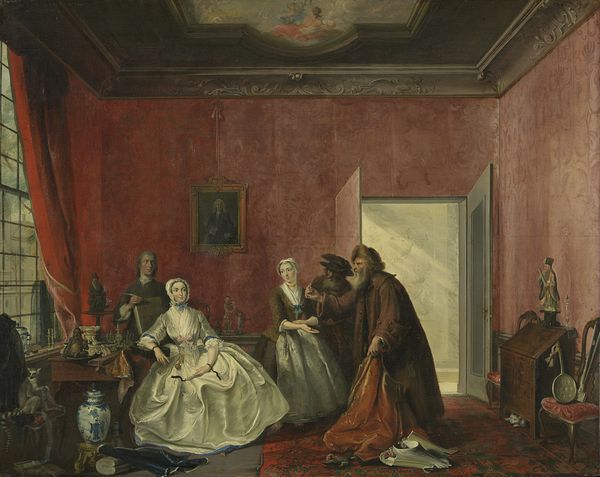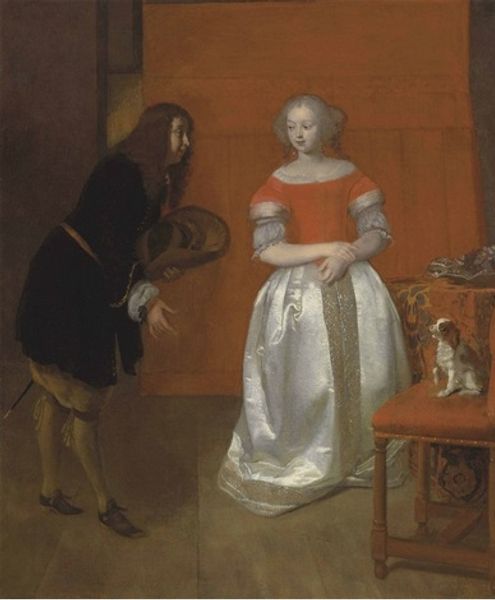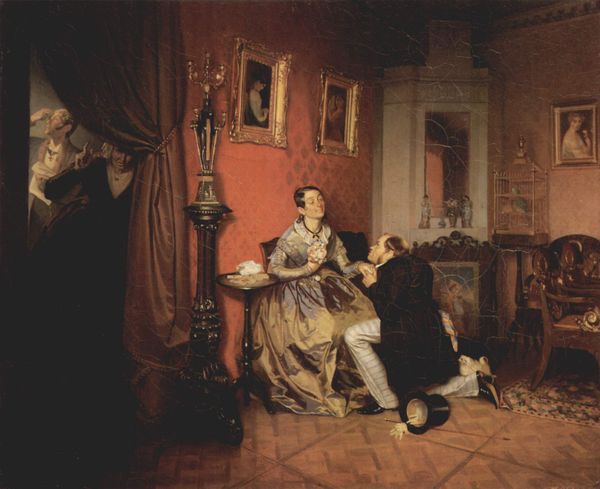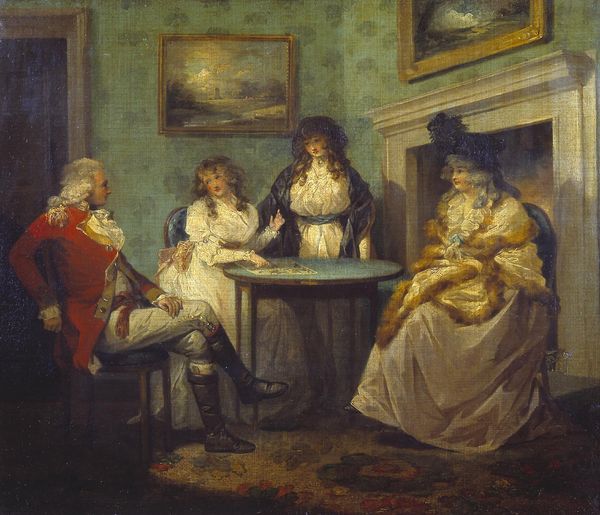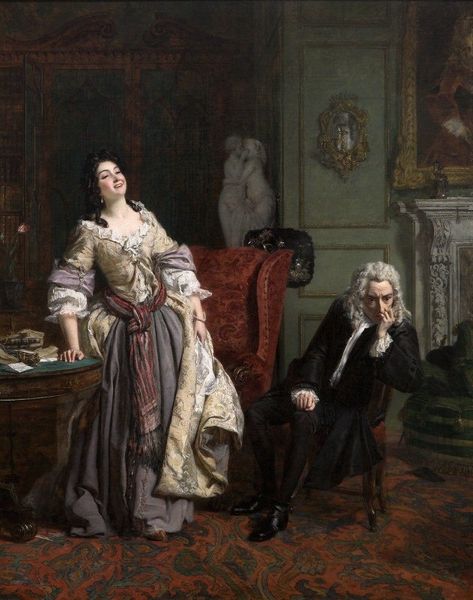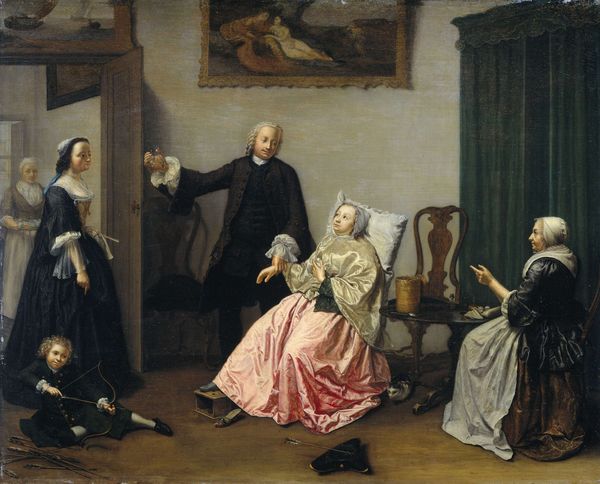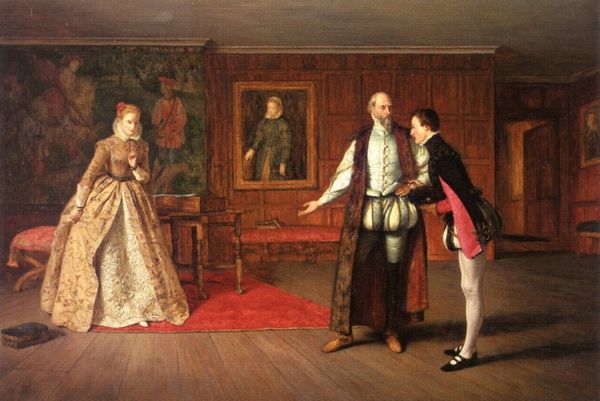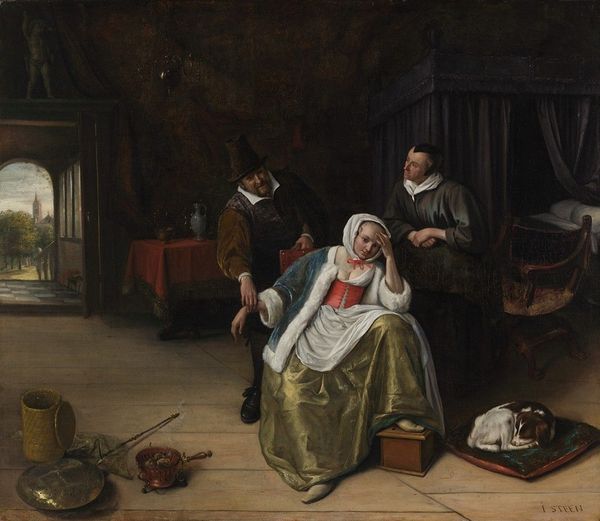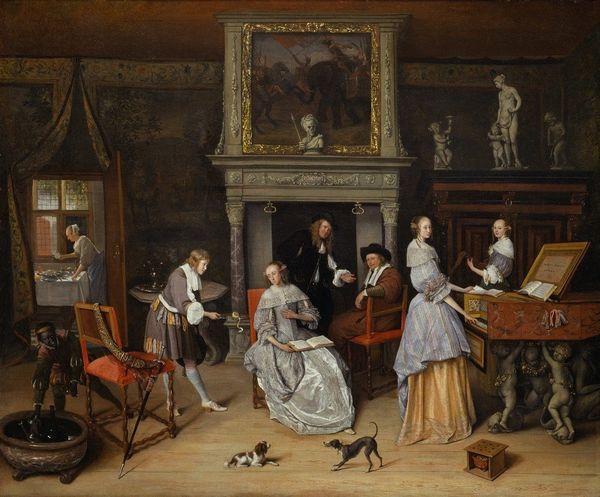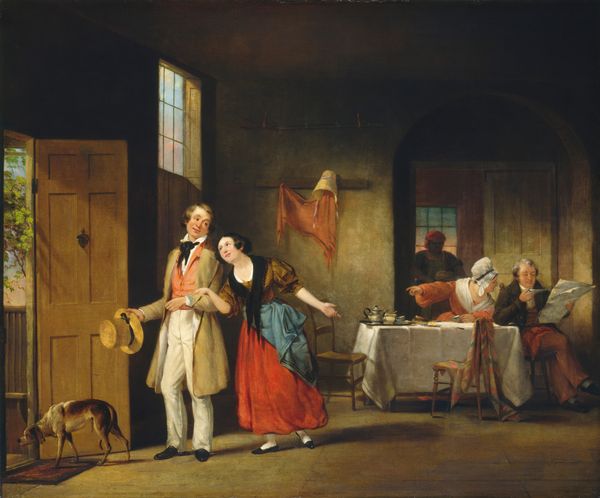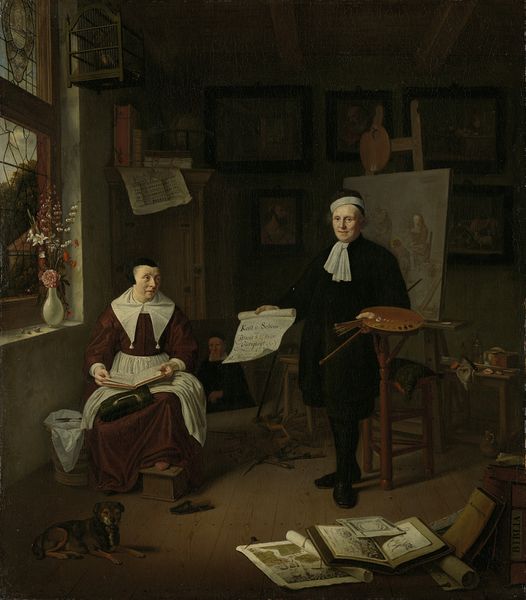
Dimensions: support: 651 x 759 mm frame: 825 x 955 x 120 mm
Copyright: CC-BY-NC-ND 4.0 DEED, Photo: Tate
Editor: This is Joseph Highmore's "I: Mr B. Finds Pamela Writing". It is undated and uses oil on canvas. There's a real stillness to the scene, and the textures seem so carefully rendered. What strikes you about it? Curator: The production of this scene—the writing tools, the clothing—speak to a very specific socio-economic context. Consider the labor involved in creating the paper, ink, quill, and the subjects' garments. How does Highmore use these material elements to comment on class and power dynamics? Editor: So, it's not just about a narrative scene but also about the means and implications of creating that scene in the first place. Curator: Exactly. By focusing on the materials and their production, we can unpack the social and economic relationships embedded within this seemingly simple image. Editor: That's a totally fresh way to look at it! I'll remember to consider the means of production.
Comments
tate 10 months ago
⋮
http://www.tate.org.uk/art/artworks/highmore-i-mr-b-finds-pamela-writing-n03573
Join the conversation
Join millions of artists and users on Artera today and experience the ultimate creative platform.
tate 10 months ago
⋮
This is the first in a series of 12 paintings by Joseph Highmore illustrating scenes from Samuel Richardson’s best-selling sentimental novel Pamela: or, Virtue rewarded. The story, first published in 1740–1, centres on the virtuous lady’s maid Pamela Andrews. She repeatedly rebuffs, then reforms and finally marries her aristocratic would be seducer, Mr B. Scene I is set in a comfortable, panelled study of a well-to-do house. Its solid, old-fashioned furniture and a picture of The Good Samaritan over the fireplace underline the traditional values of the heroine. Gallery label, February 2016
